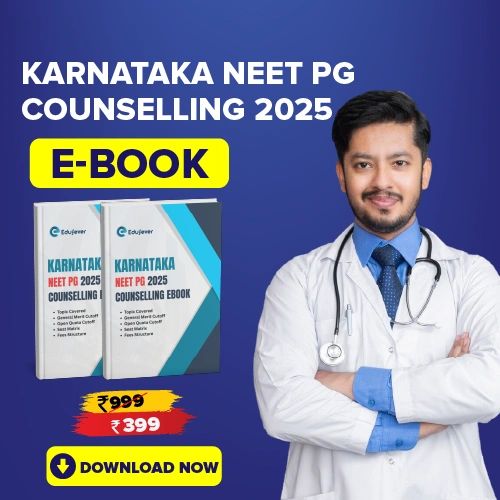During NEET PG counselling, many students face a common question:
“Should I go for my dream specialization in an average college, or choose a reputed institute even if I don’t get my preferred branch?“
There is no single right answer. It depends on your personal interest, career plans, and practical factors.
In this article, we explain the pros and cons of both options, selecting your favorite branch in a lower-ranked college vs compromising on branch to study in a top institute.
We also cover how this choice plays out in All India Quota vs State counselling, the differences between government and private colleges, and how these decisions affect your long-term career.
The Branch vs Institute in NEET PG Counselling 2025
In NEET PG counselling, students often face a tough choice:
“Should I go for the medical branch I love, or the institute with a strong reputation?“
For example, you may get a popular clinical branch in an average college, or a less preferred subject in a top institute.
| NEET PG Counselling Guide 2025 | |
|---|---|
| MCC NEET PG Counselling Guide eBook 2025 | 📥 Download |
| DNB Counselling Book 2025 | 📥 Download |
Many experts suggest that you should prioritize the branch because your specialization will stay with you for life, while the institute is only a three-year journey. Choosing a subject you don’t enjoy, just because it’s in a prestigious college can be a bad decision.
However, the institute also matters. A good college can give you better training, experienced faculty, motivated peers, strong clinical exposure, and more opportunities in the future. On the other hand, if you pick your dream branch in a poorly rated college, the lack of academic environment or support could affect your learning.
In short, both branch and institute have their pros and cons. The right choice depends on your career goals, personal interests, and what matters most to you.
All India Quota (AIQ) vs State Quota: Does the Priority Change?
Understanding AIQ and State Quota
- All India Quota (AIQ): 50% of seats in government medical colleges across India are filled through MCC counselling. Here, you compete with candidates from all over the country.
- State Quota: The other 50% of seats are reserved for candidates with domicile of that state. Competition is limited to local students, so cut-offs are usually lower.
| Example: If your rank isn’t high enough for MD Medicine in AIQ, you might still get it under your state quota. State counselling also gives you the benefit of studying closer to home. |
Advantages of State Quota
- Lower cut-offs due to limited competition.
- Higher chance of securing a good branch.
- Option to stay near family and in a familiar environment.
Limitations of State Quota
- Choices restricted to colleges within your home state.
- Some states may not have reputed colleges or good exposure in certain specialties.
- Students may miss better training or facilities available in other states.
| Example: A student from a small state may choose a reputed institute in another state through AIQ if it offers better clinical exposure or their preferred specialty. |
What Should You Prioritize?
- Branch usually comes first. Experts advise that specialization defines your career, while college is a shorter-term factor.
- In AIQ, top branches like Radiology, Dermatology, or Medicine require very high ranks.
- In state counselling, due to lower competition, you might secure both a good branch and a decent college.
Read Also: Top 10 Branches That Filled First in NEET PG Counselling
Key Takeaway
Your overall priority (branch vs. college) doesn’t change between AIQ and state counselling, but your practical chances do.
- In AIQ → higher competition, need top rank for top branch.
- In State Quota → better chance to balance both branch and college.
Always fill your choices in order of true preference:
- Dream branch in dream college
- Dream branch in acceptable college
- Acceptable branch in good/reputed college
This way, you maximize your chances without missing out.
Government vs Private/Deemed Colleges: Key Factors to Consider
The branch vs institute debate also depends on whether the college is government-run or private/deemed. Both come with their own pros and cons.
Cost & Stipend
- Government Colleges: Very affordable (₹20,000 – ₹1.5 lakh per year) and usually provide a stipend.
- Private/Deemed Colleges: Very expensive (₹15 lakh – ₹1 crore for the full course) and may not give stipends.
“For many students, money is the biggest deciding factor.“
Clinical Exposure
- Government Colleges: High patient inflow from all sections of society. You see a wide variety of cases and get excellent hands-on training.
- Private/Deemed Colleges: Modern infrastructure and smaller batches, but patient numbers are often lower, which can reduce practical exposure in some branches.
Also Read: NEET PG 2025 Cutoff Prediction for Clinical vs Non-Clinical Branches
Academic Environment
- Top Institutes (MAMC, CMC, etc.): Excellent academics whether government or private.
- Other Colleges: A lower-ranked private college may lack academic depth, while a new government college may suffer from limited resources.
“Always check the specific reputation of the branch in that college, not just the overall ranking.“
Location & Service Bonds
- Government Colleges: Often have compulsory service bonds (1–3 years), usually in rural or home-state postings.
- Private/Deemed Colleges: No service bonds, giving you freedom to start practice or pursue super-specialization immediately.
Read Also:
- Government NEET PG Medical Colleges in India with Bond Fees in PDF
- Private NEET PG (MD/MS) Medical Colleges in India with Bond in PDF
- Deemed University NEET PG Medical Colleges Bond in India
- State wise Bond For NEET PG 2025: Amount, Stipend, Penalty, Duration, etc.
What Experts Suggest
- Don’t decide only on college name or type.
- Match your specialty choice with the institute that supports it best.
| Example: If you want to pursue Cardiology in the future, doing MD Medicine in a college with a strong Cardiology department (even if not top-ranked) may benefit you more than choosing a less interesting branch (like Pathology) in a famous institute. |
In summary:
- Government = Low fees + stipend + huge patient load + strong clinical exposure (but bonds apply).
- Private = High cost + modern facilities + smaller batches + no bonds (but may lack patient volume).
Choose based on your career goals, finances, and the specialty you truly want.
Specialisation vs Institute: Pros and Cons
| Decision Strategy | Pros | Cons |
|---|---|---|
| Specialization-First (Branch Priority) Choose your dream MD/MS branch, even if the college is lower-ranked | – Career Alignment → Do what you love for life – Immediate Expertise → Start early in your chosen field – No Regrets → Avoid lifelong mismatch | – Variable Training Quality → Cases, faculty may be limited – Reputation Loss → Weaker brand name & networking – Fewer Resources → Less exposure & research opportunities |
| Institute-First (College Priority) Choose a reputed institute even if the branch isn’t your top choice | – High-Quality Training → Better faculty, facilities & patient load – Academic Prestige → Brand name strengthens your CV – Future Flexibility → Broader specialties open more doors later | – Interest Mismatch → Burnout risk if passion is low – Heavy Workload → Competitive environment adds stress – Delayed Goals → May still chase dream branch later |
Key Takeaway:
- Specialisation-First = Passion & Long-Term Career Fit
- Institute-First = Prestige, Training Quality & Wider Future Options
In short, specialisation-first maximises personal fulfilment and expertise in your chosen field, while institute-first maximises training quality and prestige. Many experienced doctors advise leaning towards the specialisation you love, because “your career matters more than the college name” in the long run.
But it’s also wise to ensure the college you pick (even if lower-ranked) is at least decent – check that it has the necessary accreditation, facilities for your course, and a patient load that will adequately train you.
Also Read: How to Prepare for NEET PG 2025 Counselling Rounds
Long-Term Career Impact: Residency, Super-Specialty, and Satisfaction
The branch vs. institute decision is not just about the next three years of PG, it can shape your entire medical career.
Residency Experience
- If you love your branch: Daily duties feel more meaningful, and you’ll handle the workload better.
- If you dislike your branch: Even in a top institute, residency can become stressful and demotivating.
- Role of institute: A reputed college may make residency enriching with good teaching, advanced cases, and strong faculty.
- Workload factor: Government colleges with heavy patient load = excellent exposure but very tough schedules. Smaller or private institutes may have lighter duties but less case variety.
Super-Specialization Opportunities
- Branch choice matters most: Some branches are “end branches” (Radiology, Dermatology), while others (Medicine, Surgery) lead to DM/MCh or fellowships.
- Institute reputation helps a little: A top institute may provide better research exposure, recommendation letters, and visibility for DM/overseas applications.
- But performance matters more: Ultimately, your knowledge and entrance exam scores (NEET SS/INI-SS) decide your super-specialty chances.
“Pick the branch that keeps you motivated to study hard and excel”
Location and Network
- Training location often influences where you settle and practice later.
- Home-state PG: Helps with local job opportunities, practice setup, and possible reservation in government posts.
- National institutes: Open pan-India academic and career options.
- Private colleges: Alumni networks can help in corporate hospital placements.
- Lifestyle factor: Some aspirants choose slightly less reputed colleges in metro cities to balance quality of life, networking, and future settlement.
Long-Term Satisfaction and Growth
- True success = passion + competence. Many doctors from average colleges excel because they loved their field.
- Famous college ≠ guaranteed happiness. Some graduates from top institutes regret picking a branch they didn’t enjoy.
- Reputation may open the first few doors, but your skills, dedication, and patient care will sustain your career.
Closing Debate: Specialisation or College?
“A less famous college in your dream branch often leads to more satisfaction than a top college in a branch you dislike.“
Choosing Between Specialization and Institute
Deciding whether to focus on your specialization or the institute can feel confusing. The best way is to ask yourself:
- Do I want to work in the branch I love more than anything else?
- Or do I value being in a top academic environment, even if the subject is not my first choice?
Ideally, you should find a balance. But if you must choose, most experts suggest going for the specialization that excites you and then make the most of whichever college you get.
Use both All India and state counselling to increase your chances. Before locking your choice, check details about each college, like patient load, faculty in your branch, bonds, and fees – so you know what you’re getting into.
Read Also: NEET PG 2025 College Selection Guide: How to Choose the Right MD/MS/DNB Program?
Remember: There is no single “correct” answer. Your decision depends on your rank, finances, and career goals. What worked for a topper may not work for you.
“It’s not the building you study in, but the doctor you become that defines your career.”
So, trust your genuine interests, research well, and commit fully to your choice. That way, years later, you’ll feel satisfied with both your specialisation and the training you received.

